We’ve all felt it: that sudden heaviness in a room where a difficult conversation once happened, or the inexplicable comfort of a sun-drenched kitchen that smells faintly of citrus and warmth. Our spaces remember, and while we’re often quick to reach for a cloth when there’s visible dirt or clutter, we rarely stop to consider the invisible—the emotional residue that accumulates in the spaces we occupy.
Cleaning, in its most basic form, is a practice of renewal. When done with awareness, it becomes a ritual of emotional release, a tool for presence, and a powerful way to regulate our internal states. As we begin to understand the psychological and ‘energetic’ layers of our environment, the act of cleaning starts to look less like a chore and more like an emotional hygiene practice.
 The link between our mental health and our environment is well established. Studies in environmental psychology show that cluttered or chaotic spaces contribute to higher levels of stress, anxiety, and even depression. On the flip side, clean and ordered environments are correlated with better mood, increased focus, and improved sleep. Spaces hold associations, and these can be deeply emotional. A certain smell can take you straight back to a childhood memory, while a cluttered desk might spark feelings of overwhelm, shame, or failure. A pristine bathroom might inspire calm or even pride. Each of these emotional imprints, stored subtly in our sensory systems, can influence how we feel in a space without us consciously realising it. This is where cleaning becomes a way of tending to the unseen.
The link between our mental health and our environment is well established. Studies in environmental psychology show that cluttered or chaotic spaces contribute to higher levels of stress, anxiety, and even depression. On the flip side, clean and ordered environments are correlated with better mood, increased focus, and improved sleep. Spaces hold associations, and these can be deeply emotional. A certain smell can take you straight back to a childhood memory, while a cluttered desk might spark feelings of overwhelm, shame, or failure. A pristine bathroom might inspire calm or even pride. Each of these emotional imprints, stored subtly in our sensory systems, can influence how we feel in a space without us consciously realising it. This is where cleaning becomes a way of tending to the unseen.
Somatic wellness—tuning into how the body holds and processes experiences—gives us a valuable lens here. When we walk into a room, our nervous system immediately scans it for safety or threat. Is this a space where I can breathe easily? Is there too much visual noise? Does it feel stagnant or light?
 When we’re in emotionally charged or neglected spaces, our bodies respond: shallow breath, tension in the shoulders, a sense of unease. These aren’t signs that we need to push through—they’re signs we need to reset. Cleaning, especially when approached as a slow, intentional practice, helps our nervous system recalibrate. It invites us into movement and into grounded presence.
When we’re in emotionally charged or neglected spaces, our bodies respond: shallow breath, tension in the shoulders, a sense of unease. These aren’t signs that we need to push through—they’re signs we need to reset. Cleaning, especially when approached as a slow, intentional practice, helps our nervous system recalibrate. It invites us into movement and into grounded presence.
Creating environments that feel regulated and safe are an essential part of building a life that brings us joy and nourishment, and the act of cleaning can be a gentle, empowering way to reclaim ownership over our space and our state.
 In feng shui and other spatial philosophies, clearing the home is synonymous with clearing stuck energy. Opening windows, moving furniture, sweeping out corners—these are equally as practical as they are energetic. Cleaning with intention allows us to metaphorically and physically remove the layers that no longer serve us. This is especially powerful when paired with a clear mindset. Instead of ‘I have to clean,’ we shift to ‘I’m making space for something new.’ The process becomes mindful: each wiped surface is a signal to the brain that we’re inviting clarity, calm, and change.
In feng shui and other spatial philosophies, clearing the home is synonymous with clearing stuck energy. Opening windows, moving furniture, sweeping out corners—these are equally as practical as they are energetic. Cleaning with intention allows us to metaphorically and physically remove the layers that no longer serve us. This is especially powerful when paired with a clear mindset. Instead of ‘I have to clean,’ we shift to ‘I’m making space for something new.’ The process becomes mindful: each wiped surface is a signal to the brain that we’re inviting clarity, calm, and change.
Probiotic cleaning products add another layer to this. Unlike harsh chemical cleaners that kill everything in their path (including our mood and microbiome), probiotics support a living, balanced environment. They introduce beneficial bacteria that continue to clean for days after use, creating a microbiome of harmony—not sterility. It’s cleaning that works with nature, not against it.

We talk often about emotional hygiene: journaling, therapy, boundaries. But cleaning? That’s rarely mentioned as part of the self-care toolkit. Yet, cleaning with care and consciousness helps externalise and process inner states. Ever noticed how you’re drawn to a deep clean after a breakup, an illness, or a period of grief?
Just like our minds, our homes need regular tending, and not because they’re inherently dirty or broken, but because they’re living, breathing reflections of us. When we allow our space to stagnate, it mirrors internal stagnation. When we clear it, we often feel clearer too. At GoodBasics, we are committed to the ritual of cleaning as a way to come back to yourself. Our focus might be the biological and scientific health of your home, through probiotics, but we also recognise that our products serve a broader purpose within how you take care of your spaces; with products that feel good on your skin, safe to breathe in, and supportive of a healthier, calmer planet.
 Many cleaning products promise sterility; no scent, no trace, no bacteria. As you’ll know, we want to dispel the myth that sterility is the goal. In fact, overly sterile environments can disrupt our natural microbiome, affect our skin, and even contribute to long-term immune issues. Not to mention the sensory harshness—chemical smells, residue, irritation—that can jolt the nervous system out of balance.
Many cleaning products promise sterility; no scent, no trace, no bacteria. As you’ll know, we want to dispel the myth that sterility is the goal. In fact, overly sterile environments can disrupt our natural microbiome, affect our skin, and even contribute to long-term immune issues. Not to mention the sensory harshness—chemical smells, residue, irritation—that can jolt the nervous system out of balance.
Probiotic cleaning cultivates. These products create a supportive ecosystem, neutralising bad bacteria while introducing beneficial microbes that continue working in the background. In emotional terms, it’s like inviting helpful houseguests rather than banishing everything. The impact goes deeper than science. When we choose tools that are gentle, effective, and aligned with our values, the act of cleaning transforms. We’re not just wiping surfaces—we’re tending to the energy of a space, and by extension, our own energy too.
 In a world that asks us to rush, cleaning with intention asks us to slow down. It becomes an act of mindfulness.
In a world that asks us to rush, cleaning with intention asks us to slow down. It becomes an act of mindfulness.
There’s no shame in having a messy day, or even a messy season. Life is messy, and the way we respond to our environments can be transformative. Cleaning is a tangible, empowering way to move energy, shift mood, and support emotional clarity. Spray, wipe, rinse, breathe, as you notice your breath, your body and relax.



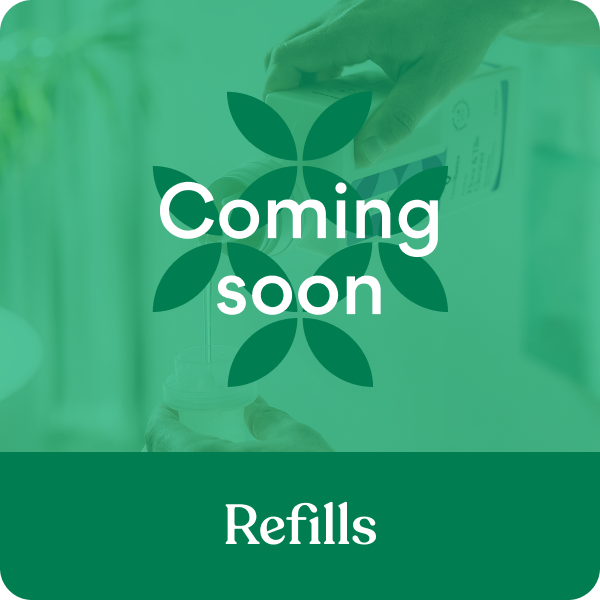
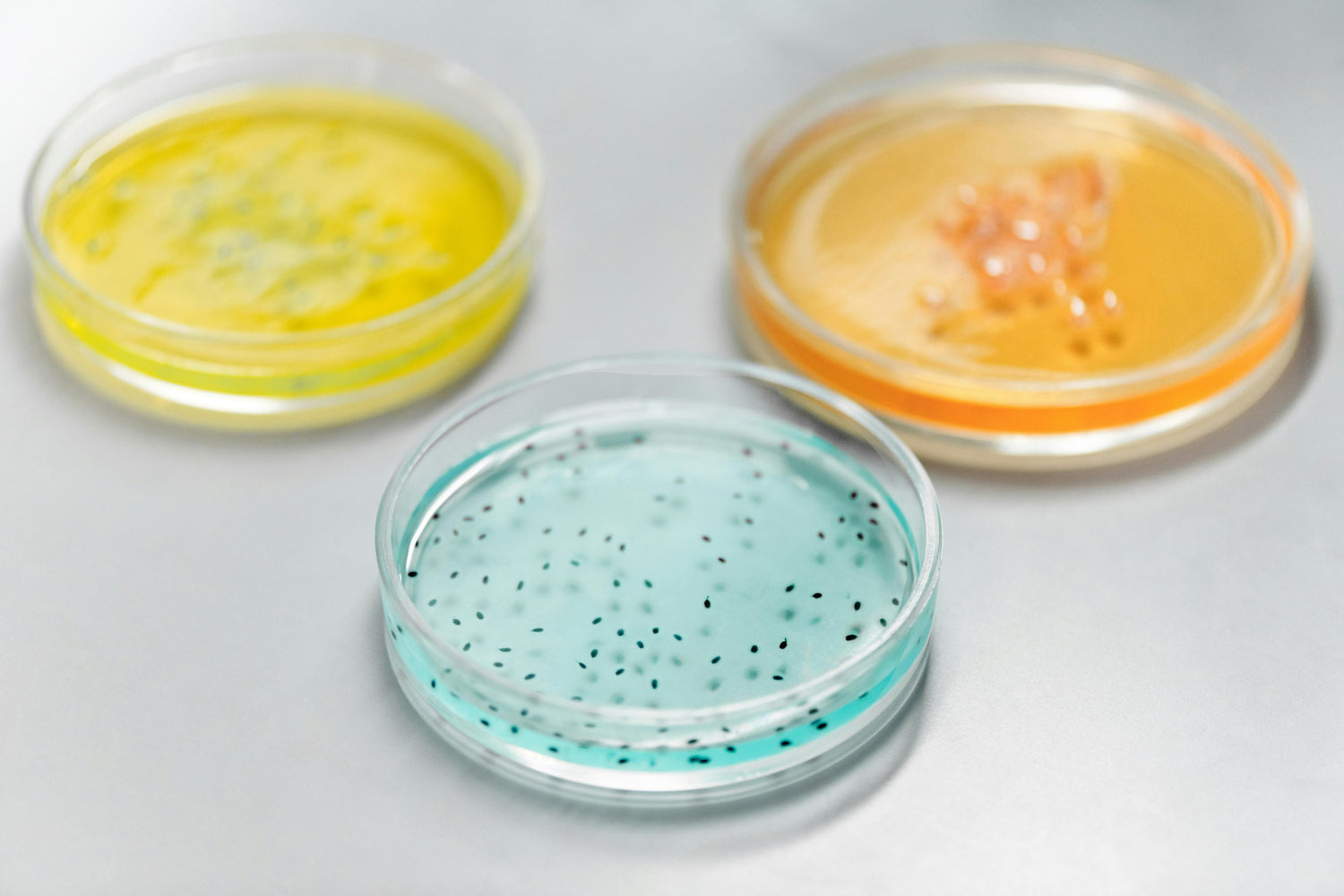

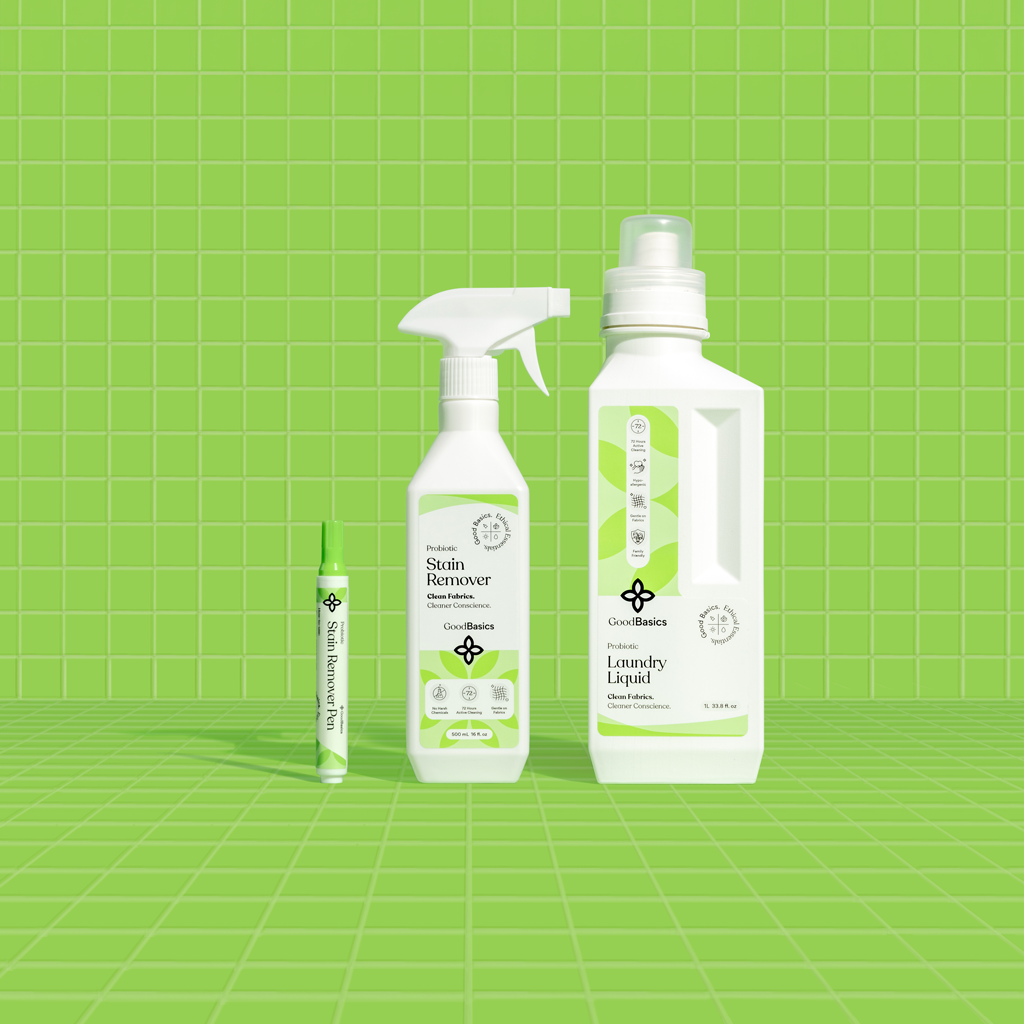
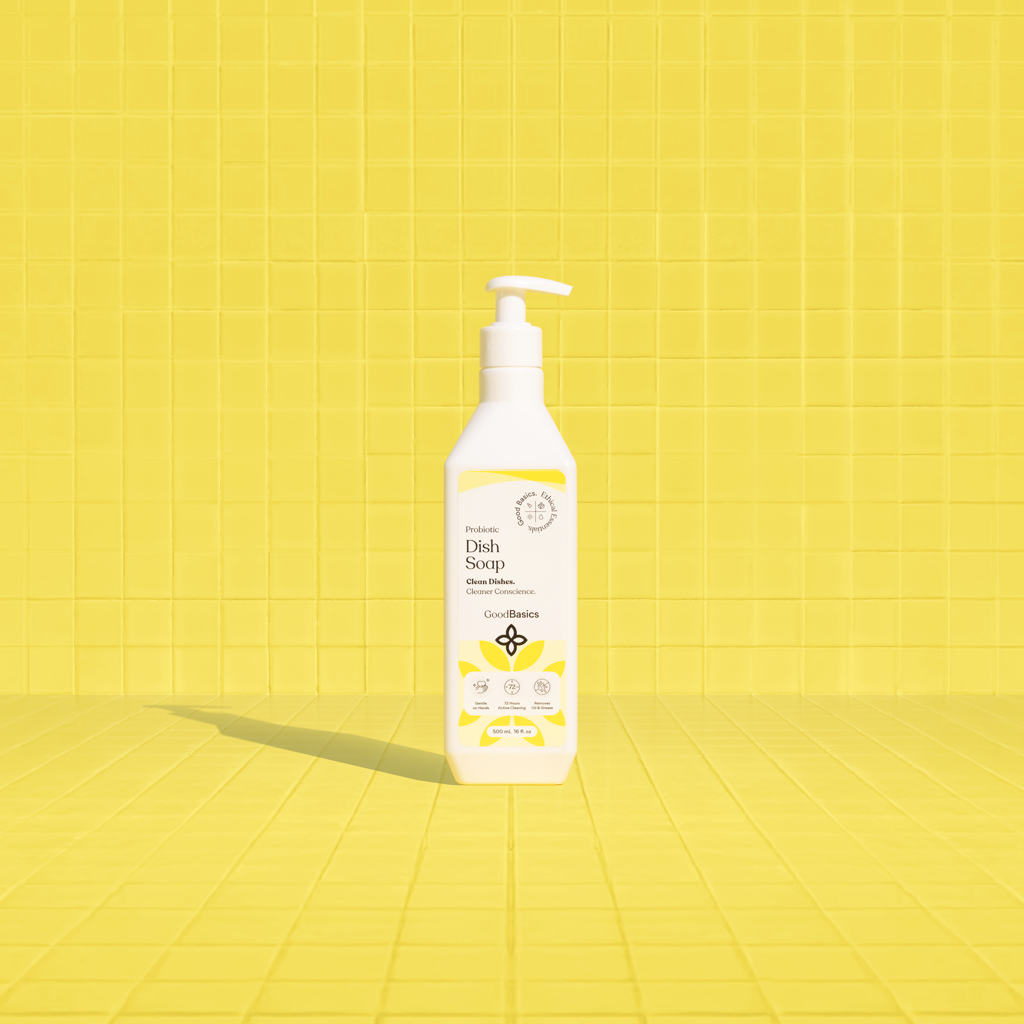
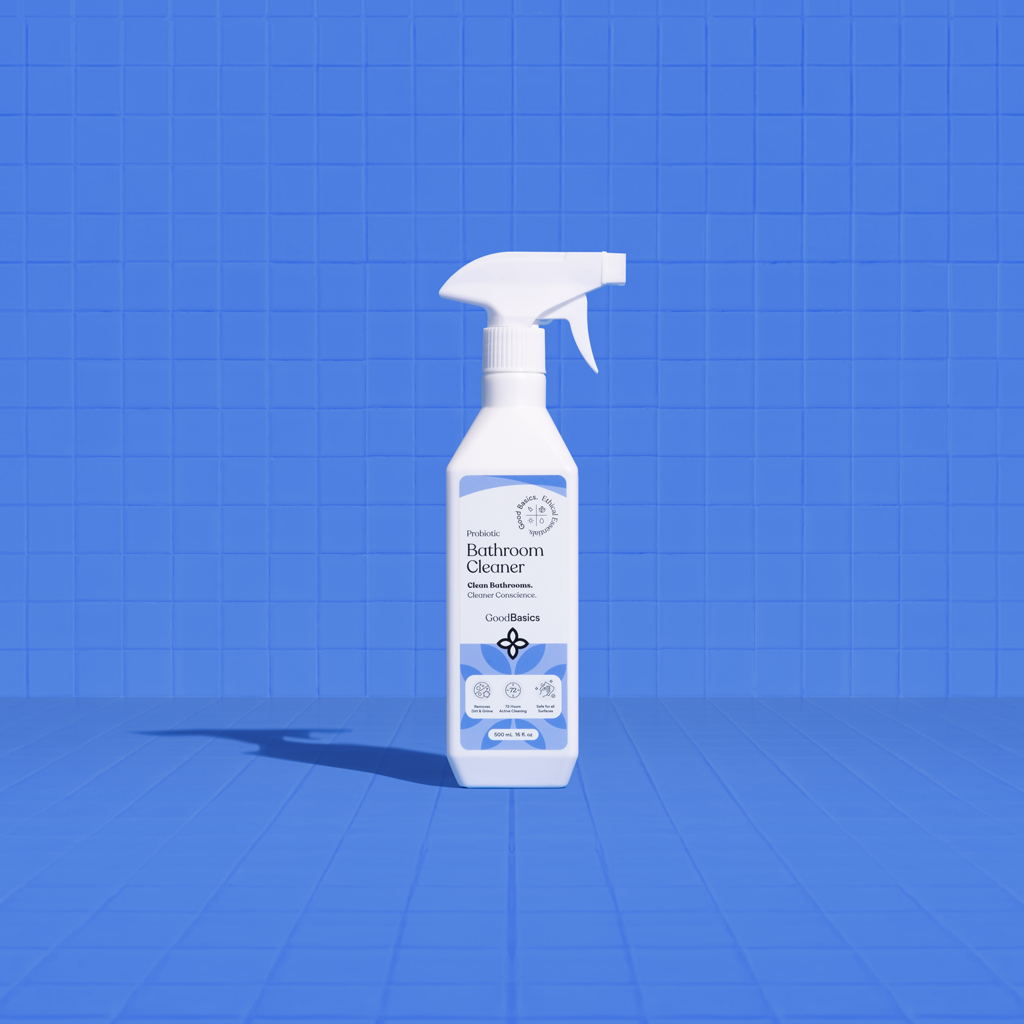
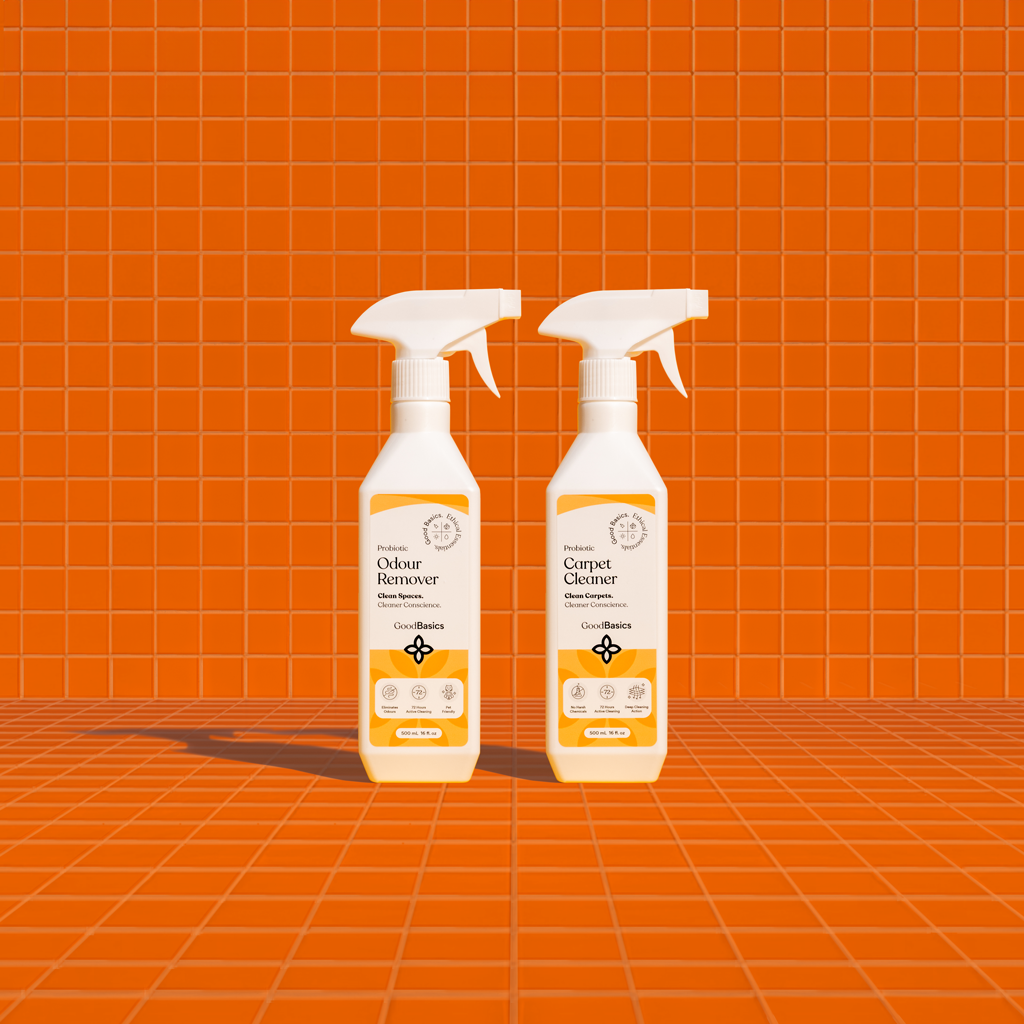
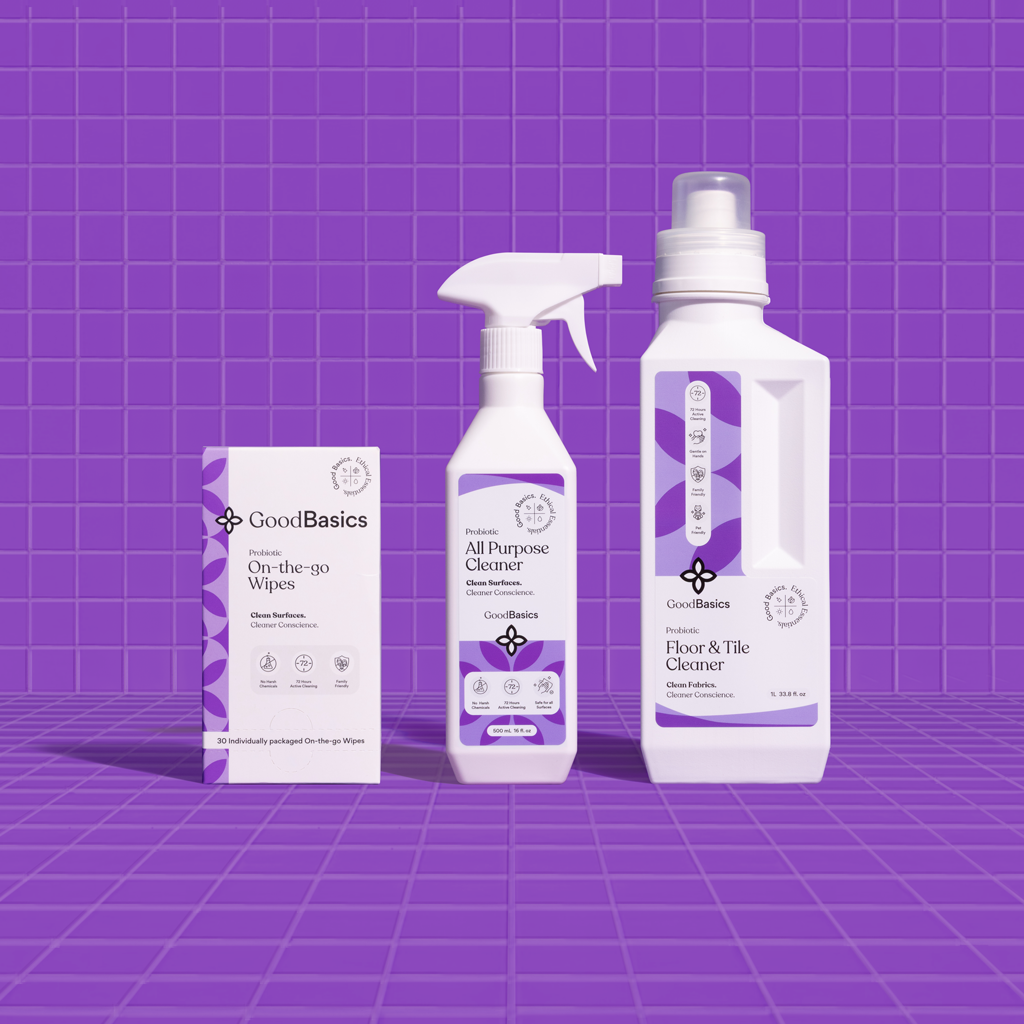
Leave a comment
All comments are moderated before being published.
All comments are moderated before being published.
This site is protected by hCaptcha and the hCaptcha Privacy Policy and Terms of Service apply.